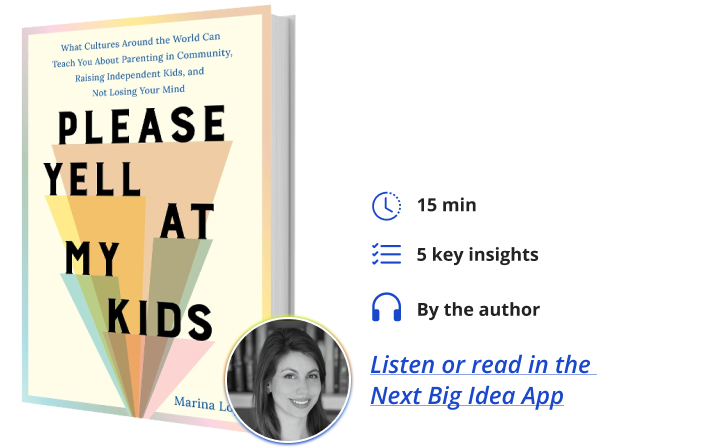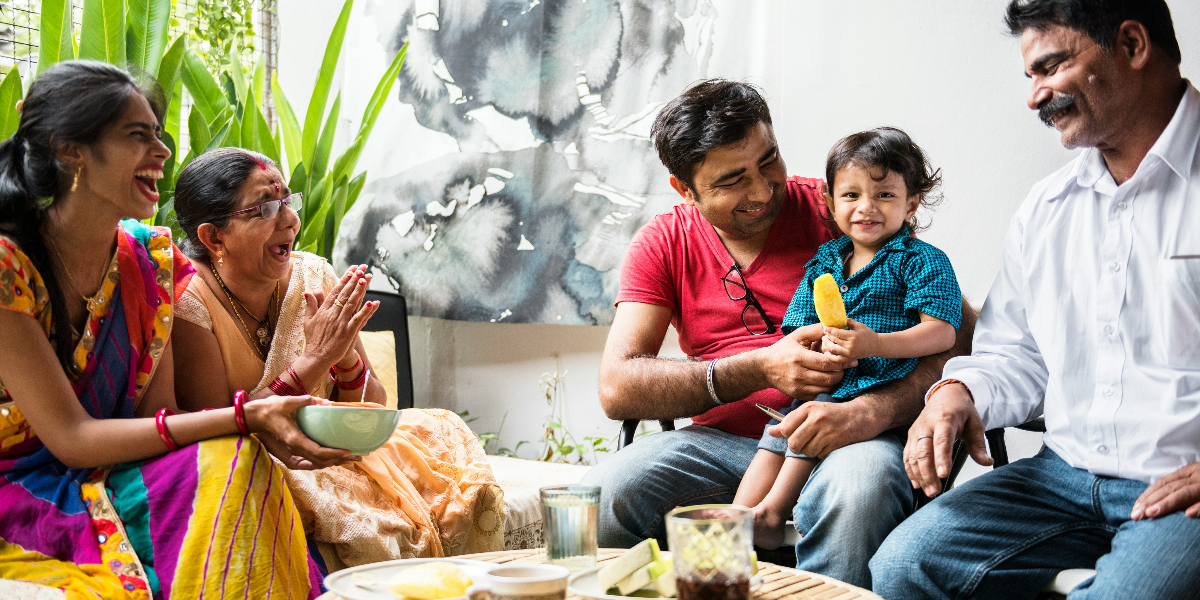Marina Lopes is a journalist, immigrant, and mother of three. She has spent years reporting on parenting practices around the world. She is a former reporter for the Washington Post, Reuters, and the Boston Globe. As of this year, she is an adjunct professor of writing for communications at American University.
What’s the big idea?
Please Yell at My Kids explores how we can raise independent, resilient children by learning from global traditions. Different cultures offer practical lessons that can help us build stronger communities and happier homes.
Below, Marina shares five key insights from her new book, Please Yell at My Kids: What Cultures Around the World Can Teach You About Parenting in Community, Raising Independent Kids, and Not Losing Your Mind. Listen to the audio version—read by Marina herself—in the Next Big Idea App.

1. Perfection is not fun.
How many times have we stopped ourselves from inviting people over because the house wasn’t spotless? Or hesitated to be vulnerable because we weren’t at our best? Around the world, I’ve learned that true community thrives in imperfection.
In Brazil, mothers-to-be invite guests to watch their C-sections, knowing they will need support through both the gory and the beautiful parts of motherhood. Those guests will be there when the baby has colic or when the mother is struggling with postpartum depression.
You don’t have to welcome your coworkers to the hospital ward to apply this concept. Invite others to share parenthood, even—and especially—when it isn’t perfect. After all, we need people to show up for us the most when we don’t have it together. We should open our hearts and our homes even in the messy moments of parenthood. Perfection is overrated.
2. Chosen family counts.
We often think of family as the people we’re born into, but around the world, I’ve seen how powerful it is to build chosen families—especially across generations.
“Move close to friends or befriend those who are already around you.”
In Malaysia, groups of up to 40 families live communally in massive homes, hunting, cleaning, and hanging out together. In these houses, seniors act as surrogate grandparents, caring for children they are not biologically related to.
You can do the same in your own neighborhood. Move close to friends or befriend those who are already around you. Find “grandfriends” for your kids who are willing to take on childcare duties or share hobbies. Raising kids is a communal effort. The more hands and hearts involved, the better.
3. Give your kids real chores and responsibility.
Kids are more capable than we think. In Mozambique, children as young as three cook, clean, and take care of younger siblings.
Giving kids real responsibility makes them feel valued. In our homes, that means assigning meaningful chores—not just as a way to “help” but as a way to contribute to an essential part of the household. When kids contribute, they feel ownership over their space, pride in their work, and an understanding that they are part of a community.
“Giving kids real responsibility makes them feel valued.”
It’s not just about making our lives easier. It’s about raising adults who know how to give of themselves to the people around them.
4. Think of your role in your neighborhood.
We all bring something to the table, and the healthiest communities recognize and use those gifts.
Ask yourself: What can you offer? Are you a math whiz? Maybe you can tutor kids on your block. Love gardening? Invite other children to plant with you. The more we lean into our strengths and contribute to the community, the more we create a world where everyone is supported.
5. Independence starts with trust.
Around the world, I’ve seen kids given the space to fail, explore, and grow. In the Netherlands, parents drop their kids off in the woods and let them find their way home.
Independence doesn’t happen overnight—it starts with trust. If we want kids to be resourceful and resilient, we have to let them try, even when it’s messy. That might mean letting them scramble eggs at age four or walk to school at eight. When we trust them, they rise to the occasion.
Enjoy our full library of Book Bites—read by the authors!—in the Next Big Idea App:
































